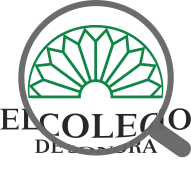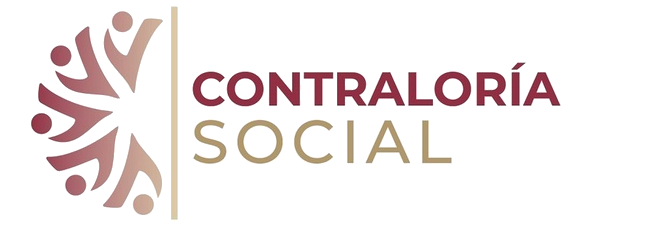The Organizational Field of Agriculture in the Yaqui Valley in Sonora
El campo organizacional de la agricultura en el valle del Yaqui en Sonora
| dc.contributor.author | López Figueroa, José Carlos | |
| dc.contributor.author | Ochoa Jiménez, Sergio | |
| dc.contributor.author | Flores López, José Guadalupe | |
| dc.coverage.spatial | MX-SON | |
| dc.coverage.spatial | MX-SON | en-US |
| dc.creator | López Figueroa, José Carlos | |
| dc.creator | Ochoa Jiménez, Sergio | |
| dc.creator | Flores López, José Guadalupe | |
| dc.date | 2022-02-10 | |
| dc.date.accessioned | 2022-06-28T19:43:13Z | |
| dc.date.available | 2022-06-28T19:43:13Z | |
| dc.date.issued | 2022-02-10 | |
| dc.identifier | https://regionysociedad.colson.edu.mx:8086/index.php/rys/article/view/1519 | |
| dc.identifier | https://doi.org/10.22198/rys2022/34/1519 | |
| dc.identifier.uri | https://repositorio.colson.edu.mx/handle/2012/46081 | |
| dc.description | Objective: to explain the Yaqui Valley’s process of structuring as an organizational field. Methodology: 13 interviews were conducted, complemented with observation. These instruments collected the testimony of seven organizations and a legal adviser, which allowed constructing four maps of the physical-territorial assets, the actors, the conflicts, and the actors’ networks. Results: the valley is visualized as an organizational field focused on the actors, which are grouped in six levels to respond the four parts proposed by DiMaggio and Powell for the structuring: 1) interaction, 2) inter-organizational structures, 3) increase in information load, and 4) development of mutual awareness. Limitations: due to the actors’ and their possible relationships diversity within the territory, it has been not feasible to include the whole universe, but the majority was incorporated. Value: the study of the territory is proposed as an organizational field under the perspective of organizational studies. Conclusions: organizational studies and their lines of research are an alternative to enhance the understanding and analysis of territory. | en-US |
| dc.description | Objetivo: explicar el proceso de estructuración del valle del Yaqui como campo organizacional. Metodología: se realizaron 13 entrevistas, complementadas con notas de campo, instrumentos que recogieron el testimonio de siete organizaciones y el de un asesor jurídico que permitieron construir cuatro mapas analíticos: el de los activos físico-territoriales, el de los actores, el de los conflictos y el de las redes de actores. Resultados: se visualiza el valle como un campo organizacional con el énfasis puesto en los actores agrupados en seis niveles para dar respuesta a las cuatro etapas que DiMaggio y Powell proponen para la estructuración de un campo organizacional: 1) la interacción, 2) las estructuras interorganizacionales, 3) el incremento en la carga de información y 4) el desarrollo de una conciencia mutua. Limitaciones: debido a la diversidad de los actores integrantes del territorio, no ha sido posible considerar a todo el universo y sus posibles relaciones, pero se incluye a la mayoría. Valor: se propone el estudio del territorio como un campo organizacional bajo la perspectiva de los estudios organizacionales. Conclusiones: los estudios organizacionales y sus líneas de investigación son una alternativa para potenciar el análisis y la comprensión del territorio. | es-ES |
| dc.description.abstract | Objective: to explain the Yaqui Valley’s process of structuring as an organizational field. Methodology: 13 interviews were conducted, complemented with observation. These instruments collected the testimony of seven organizations and a legal adviser, which allowed constructing four maps of the physical-territorial assets, the actors, the conflicts, and the actors’ networks. Results: the valley is visualized as an organizational field focused on the actors, which are grouped in six levels to respond the four parts proposed by DiMaggio and Powell for the structuring: 1) interaction, 2) inter-organizational structures, 3) increase in information load, and 4) development of mutual awareness. Limitations: due to the actors’ and their possible relationships diversity within the territory, it has been not feasible to include the whole universe, but the majority was incorporated. Value: the study of the territory is proposed as an organizational field under the perspective of organizational studies. Conclusions: organizational studies and their lines of research are an alternative to enhance the understanding and analysis of territory. | en-US |
| dc.description.abstract | Objetivo: explicar el proceso de estructuración del valle del Yaqui como campo organizacional. Metodología: se realizaron 13 entrevistas, complementadas con notas de campo, instrumentos que recogieron el testimonio de siete organizaciones y el de un asesor jurídico que permitieron construir cuatro mapas analíticos: el de los activos físico-territoriales, el de los actores, el de los conflictos y el de las redes de actores. Resultados: se visualiza el valle como un campo organizacional con el énfasis puesto en los actores agrupados en seis niveles para dar respuesta a las cuatro etapas que DiMaggio y Powell proponen para la estructuración de un campo organizacional: 1) la interacción, 2) las estructuras interorganizacionales, 3) el incremento en la carga de información y 4) el desarrollo de una conciencia mutua. Limitaciones: debido a la diversidad de los actores integrantes del territorio, no ha sido posible considerar a todo el universo y sus posibles relaciones, pero se incluye a la mayoría. Valor: se propone el estudio del territorio como un campo organizacional bajo la perspectiva de los estudios organizacionales. Conclusiones: los estudios organizacionales y sus líneas de investigación son una alternativa para potenciar el análisis y la comprensión del territorio. | es-ES |
| dc.format | application/pdf | |
| dc.format | text/xml | |
| dc.language | spa | |
| dc.language.iso | spa | |
| dc.publisher | El Colegio de Sonora | es-ES |
| dc.relation | https://regionysociedad.colson.edu.mx:8086/index.php/rys/article/view/1519/1811 | |
| dc.relation | https://regionysociedad.colson.edu.mx:8086/index.php/rys/article/view/1519/1812 | |
| dc.rights | Derechos de autor 2022 Jos´é Carlos López Figueroa, Sergio Ochoa Jiménez, José Guadalupe Flores López | es-ES |
| dc.rights | https://creativecommons.org/licenses/by-nc/4.0/ | es-ES |
| dc.rights | info:eu-repo/semantics/openAccess | es-ES |
| dc.source | 2448-4849 | |
| dc.source | 1870-3925 | |
| dc.source | región y sociedad; Vol. 34 (2022): Rolling pass; e1519 | en-US |
| dc.source | región y sociedad; Vol. 34 (2022): Publicación continua ; e1519 | es-ES |
| dc.subject | Ciencias Sociales | |
| dc.subject | Organizational studies | en-US |
| dc.subject | Organizational field | en-US |
| dc.subject | Territory | en-US |
| dc.subject | Agricultural organizations | en-US |
| dc.subject | Yaqui valley| | en-US |
| dc.subject | Estudios organizacionales | es-ES |
| dc.subject | Campo organizacional | es-ES |
| dc.subject | Territorio | es-ES |
| dc.subject | Organizaciones agrícolas | es-ES |
| dc.subject | Valle del yaqui | es-ES |
| dc.subject.lcsh | Organizational studies | en-US |
| dc.subject.lcsh | Organizational field | en-US |
| dc.subject.lcsh | Territory | en-US |
| dc.subject.lcsh | Agricultural organizations | en-US |
| dc.subject.lcsh | Yaqui valley| | en-US |
| dc.subject.lcsh | Estudios organizacionales | es-ES |
| dc.subject.lcsh | Campo organizacional | es-ES |
| dc.subject.lcsh | Territorio | es-ES |
| dc.subject.lcsh | Organizaciones agrícolas | es-ES |
| dc.subject.lcsh | Valle del yaqui | es-ES |
| dc.title | The Organizational Field of Agriculture in the Yaqui Valley in Sonora | en-US |
| dc.title | El campo organizacional de la agricultura en el valle del Yaqui en Sonora | es-ES |
| dc.type | info:eu-repo/semantics/article | |
| dc.type | info:eu-repo/semantics/publishedVersion | |
| dc.audience | generalPublic | |
| dc.identificator | 5 |
Files in this item
| Files | Size | Format | View |
|---|---|---|---|
|
There are no files associated with this item. |
|||










